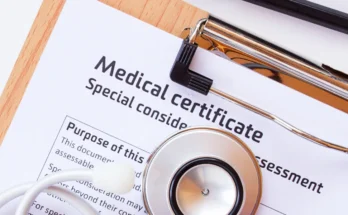Sometimes, individuals face not just one challenge but two deeply intertwined ones — a substance use disorder and a mental health disorder. This is what “dual diagnosis” refers to: two conditions occurring together that feed into and worsen each other unless treated in a coordinated way.
At its core, dual diagnosis treatment aims to understand how the use of drugs or alcohol may be impacting or masking symptoms of mental illness, and vice versa. Without this integrated approach, recovery efforts may only address surface problems, leaving deeper wounds unhealed.
Recognizing When You Need Dual Diagnosis Care
It’s not always obvious when dual diagnosis is present. Some common signs include:
- Repeated failed attempts to quit substance use without improvement in mental health
- Using substances as a way to numb or escape emotional pain
- Persistent issues like mood instability, anxiety, depression, or obsessive thoughts even when not under the influence
- Worsening of one disorder when trying to treat the other in isolation
If these patterns are familiar, seeking a treatment program that can address both disorders simultaneously can lead to far better outcomes.
How Dual Diagnosis Treatment Works
Effective dual diagnosis programs typically involve:
- Comprehensive Assessment & Diagnosis
Clinicians conduct in-depth interviews, screenings, and may use medically supervised tools to understand severity of substance use and mental health symptoms. - Customized Treatment Plans
Based on the assessment, a tailored plan is made, combining therapy for the mental health component with addiction care. - Multiple Levels of Care
Options range from inpatient or residential treatment (for those who need a high degree of supervision and support) to partial hospitalization, to intensive outpatient, and outpatient continuation. - Varied Therapeutic Modalities
Therapy often includes evidence-based approaches: cognitive-behavioral therapy (CBT), dialectical behavior therapy (DBT), trauma therapy, possibly medications when appropriate, plus group sessions, family involvement, holistic practices. - Relapse Prevention and Aftercare
A long-term plan including coping skills, trigger awareness, support systems, and ongoing monitoring is essential to maintain gains and prevent relapse.
What Distinguishes Dual Diagnosis Treatment
The dual diagnosis model differs from standard addiction treatment in that it does not treat substance abuse or mental illness separately. It sees both disorders as influencing each other. For example, untreated PTSD or depression may lead someone to drink heavily; heavy drinking then worsens anxiety, which in turn may increase substance use — creating a cyclical pattern.
This treatment model also involves a team approach: therapists, psychiatrists, addiction specialists, and sometimes medical doctors all working together so that all parts of the person are supported.
The Risks of Not Treating Both Together
Ignoring one side of the pair often leads to:
- More frequent relapses
- Misdiagnosis of either side (mental health symptoms mistaken for substance use withdrawal, or substance issues overlooked in someone diagnosed with depression or anxiety)
- Greater physical, emotional, relational collateral damage
- Increased risk of developing more severe psychiatric or addiction problems
Where Treatment Matters Locally
If you are looking for help in a major city like Dallas, then thinking about programs such as Dallas Drug Rehab can be important. A facility which focuses on drug rehab but also offers mental health services can give you or your loved one the dual focus needed to heal both disorders together.
Likewise, if the issue involves alcohol, seeking a specialized Dallas alcohol rehab program that also treats co-occurring mental conditions can make the difference between temporary improvement and long-term recovery. It’s vital to verify whether such centers offer integrated dual diagnosis care rather than just separate services.
Taking the First Step
If you or someone you care about seems to be struggling with both a mental health issue and substance use, here are actionable steps to move toward help:
- Schedule a Screening — with a mental health professional and/or addiction specialist to see whether dual diagnosis might be present.
- Check Treatment Options — make sure the facility offers integrated treatment for both disorders, not just addiction or just therapy.
- Ask about Therapies & Supportive Services — beyond counseling alone: what about psychiatric evaluation, medication management, group therapies, family involvement, relapse prevention.
- Look into Financial & Insurance Support — many centers work with insurance, sliding scale fees, or can help you find resources.
- Plan for Ongoing Support — completing the initial treatment is just part of recovery; peer support, alumni programs, outpatient follow ups are essential.




